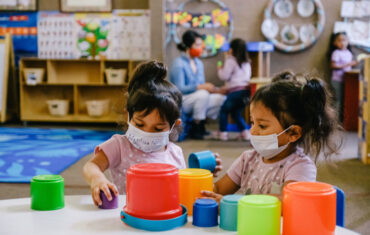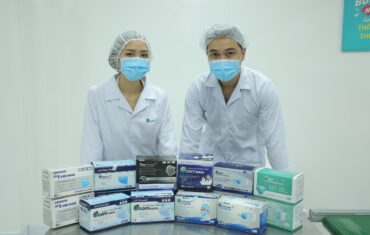Due to COVID-19, the demand for protective masks exceed global manufacturing capacity for months now. Manufacturers around the world have been searching for creative solutions to meet this increased demand. However, some manufacturers do not meet the regulatory requirements to produce PPE and sell it in other countries. Even worse, some vendors are selling counterfeit masks that do not even attempt to meet regulatory standards. This has led to thousands of face masks being discarded. Many hospitals have only discovered their mistake after the masks have already been used by healthcare professionals. To ensure their own safety and that of their patients, purchasers need to be aware of the different types of face masks. And what quality standards they should expect from each of them.
Surgical Masks
Surgical masks will be familiar to anyone who has received surgery or witnessed it in a hospital setting. They do not provide full protection from coronavirus particles. But users use commonly these single-use masks in many healthcare settings. They fit loosely, cover the mouth and nose. Manufacturers design masks to resist fluid transmission. At the present time, surgical masks need to conserve for use by healthcare professionals.
The FDA regulates the production of surgical masks, and they must meet certain standards for fluid protection effectiveness. In light of the mask shortage, the FDA has waived some of the premarket notification requirements for surgical masks. However, there are still methods customers can use to discern counterfeit masks that fail to meet basic quality standards. In particular, the inner layer of fabric in the mask should be melt-blown, not woven, and the masks should not be flammable.
Face Masks
For healthy members of the general public, people recommend many other types of face masks. Manufacturers do not guarantee to protect wearers from either fluids or airborne particles. But they can protect those who are carrying the virus from infecting others. Because of this, countries around the world have recommended that everyone wear face masks in public to slow the spread of the disease. Cloth face masks are reusable, and often have filters that can be replaced.
Face masks for consumer are not as tightly regulated as masks used in healthcare settings. And they may not meet the same quality standards for protecting the wearer.
Respirator
Respirator masks are the gold standard of personal protective equipment. In the US, the most well-known respirator mask is the N95, which is more stringently regulated and offers better protection than surgical masks. It protects against not only large droplets, but also 95% of small particle aerosols. This is a better choice for protection against the coronavirus. Unlike surgical masks, N95 masks are tight-fitting. Besides, they must meet more stringent regulatory requirements than surgical masks. While the FDA regulates surgical mask testing and marketing, N95 respirators are evaluated and tested by NIOSH.
In the United States, authentic N95 respirators will have an approval label on the packaging as well as the mask itself. Counterfeit respirators may not have these markings, or the markings may not match those on the website. N95 respirators do not have decorative fabric or adornments, and they are held on with ear loops.
Conclusion
No matter what type of mask they are considering, purchasers should watch out for counterfeits and low-quality products. However, you are a member of the public and think you have a counterfeit mask. You need not throw it away–often, even masks that do not meet N95/FFP standards are still sufficient for use by healthy individuals who are not in high-risk situations. However, customers purchasing masks for use in healthcare or other high-risk contexts should consider switching to a new supplier immediately.






